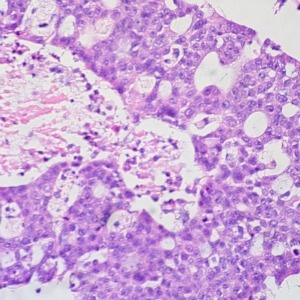A lack of support for GPs has led to avoidable delays in brain tumour diagnoses, a new study has found.
Researchers discovered that the time taken to diagnose a patient with a brain tumour varied significantly depending on the symptoms, with the time taken by GPs to refer patients to secondary care being a major cause.
Using brain tumour cases from the National Audit of Cancer Diagnosis in Primary Care, the researchers conducted a secondary analysis.
They grouped neurological symptoms into six domains: headache, behavioural/cognitive change, focal neurology, ‘fits, faints or falls’, non-specific neurological, and other/non-specific.
The researchers then calculated the time from symptom presentation through to GP referral, specialist consultation, and finally the total pathway – from patient recognition of symptoms to first specialist visit.
The study, published in Family Practice, aimed to locate variations in the time taken to diagnose brain tumours.
The paper found clear differences in the time from symptoms presenting to patients first visit to a specialist, with the type of symptoms experienced being a clear factor.
While the median average pathway time was less than four weeks, patients who presented with headaches, behavioural or cognitive changes, and other non-specific symptoms, attended more GP consultations prior to being referred.
Additionally, experiencing only headaches or memory loss were found to be linked to a much slower patient pathway, with delays in the referral from primary to secondary care being the main cause.
The paper said: ‘Since headache is a common complaint, it is difficult for GPs and other doctors to differentiate less serious causes of headache from headaches secondary to a brain tumour.’
It added: ‘Headaches associated with brain tumours are frequently of “tension” type or mimic migraine and the best clues are increasing frequency and severity and headache features (e.g. worsening with cough or bending, nocturnal headaches or headaches on wakening).
‘The development of additional symptoms e.g. focal neurology or signs will strongly support the diagnosis.’
A total of 226 brain tumour patients with details on symptoms were looked at. Focal neurology including stroke was the most common symptom in 33.2% of the cases, while episodic attacks including ‘fits, faints or falls’ made up 20.8% and headache 20.8%.
The shortest pathway time was seen for fits, faints or falls at 10 days, whilst the longest was seen for memory loss at 62 days. Patients under 60 also experienced longer delays in referral and specialist consultation.
Surprisingly, the study also found that those who underwent investigation prior to a specialist referral had a longer pathway interval.
Exeter primary care diagnostics Professor Willie Hamilton, who authored the paper, said: ‘Let’s start off with the simple problem, for a GP that is, that brain tumours are difficult to diagnose. Firstly they are rare (but important) so a GP will only see a handful during their own career.
‘Secondly, the symptoms (other than a seizure) are rather subtle – and there are lots of different ones. Thirdly, the headline symptom – a headache – is something we all experience. It’s very difficult to spot the one patient with a tumour from the hundreds or thousands who haven’t got one. When you say “needle in a haystack” that’s what this is’.
He then stressed that for a patient, avoidable delays in diagnosis can be ‘ghastly’, and said: ‘We need to get brain tumour on the map. The current prognosis is poor – one of the routes to improving that is through increasing GP awareness.’
According to the paper, some GPs stated that more rapid access to investigative tools such as neuroimaging could help with less specific symptoms such as headaches. However, researchers acknowledged that the cost-effectiveness of this would have to be taken into consideration.
Currently, NICE guidelines recommend that GPs consider an urgent MRI or CT scan, to be performed within two weeks, in order to check for brain cancer, if the patient is suffering from ‘progressive, sub-acute loss of central neurological function.’
As it stands, patients with only headache or simple memory loss would not meet these criteria.
The authors concluded that additional support and guidance is needed to help GPs differentiate when to refer headaches and memory complaints for an urgent specialist opinion, as well as further examination on whether rapid access to neuroimaging has reduced time delays in diagnosis and improved morbidity and survival.
Pulse October survey
Take our July 2025 survey to potentially win £1.000 worth of tokens












